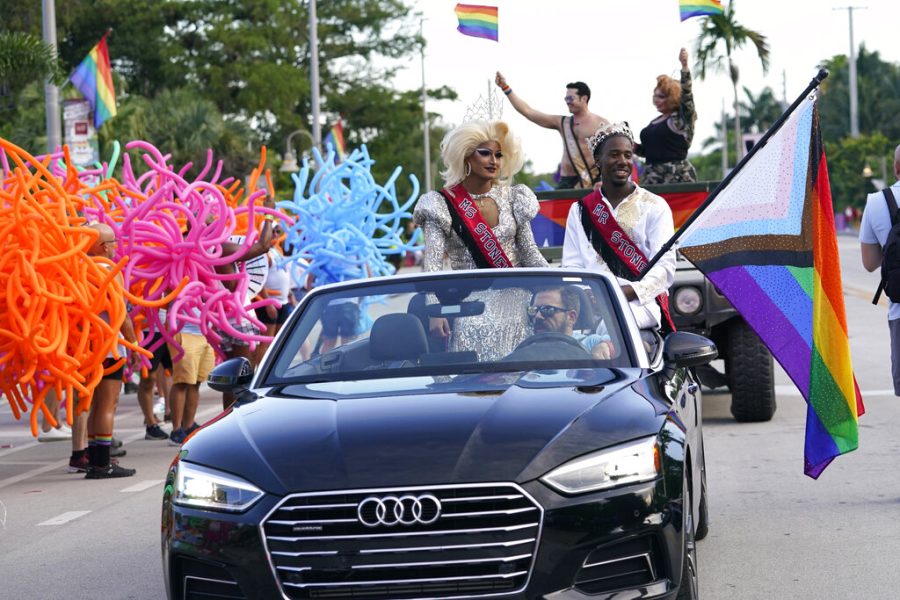What is Stonewall, and why does it matter?
A reflection of American LGBTQ+ history
AP Newsroom
The annual Stonewall pride parade celebrates the historic Stonewall riots and the start of the LGBTQ human rights movement.
New Trier observed LGBTQ+ History Month this October by celebrating the rich queer history of America, taking time to spotlight LGBTQ+ clubs at the school, and showing its support for LGBTQ+ students.
This monthly observance is not only celebrated at New Trier; LGBTQ+ History Month is both nationally and internationally celebrated. The observance was founded in 1994 and has been growing in popularity ever since.
One of the reasons the United States celebrates this month is because of the events and people who fought for gay rights in the past. One of these major events is Stonewall.
Although the riot may seem insignificant, the incident at the Stonewall Inn is widely viewed as the catalyst for the gay rights movement.
In Greenwich Village situated in Lower Manhattan, officers from the Sixth Police District entered the Stonewall Inn, a local gay bar, in the early hours of June 28, 1969. The bar had been distributing alcohol illegally, which left the Inn open to police interference.
Armed with a warrant, the police confiscated alcohol, assaulted and arrested 13 people including patrons and employees, and sent suspected crossdressers to the bathrooms to be examined by female officers.
Instead of fleeing, the remaining people in the bar surrounded the Stonewall Inn and began to throw coins, bottles, and other objects after the police. A riot eventually broke out, which changed the course of the gay rights movement.
Weeks after the initial riot, multiple other protests took place after physical and verbal backlashes toward the queer community. New LGBTQ+ newspapers and organizations were founded, both in New York and around the country.
It remains unclear who started the riot; Marsha P. Johnson, a transgender woman has widely been credited for throwing the first object at police, although she rebutted that claim in 1987. Other patrons who were part of the riot believe that it was the homeless youths who were fed up with the aggression from police, and were the first to fight back.
During the one year anniversary of the event, the first Pride marches took place in New York City, Chicago, and Los Angeles to commemorate the historical moment and to continue the fight for social justice for LGBTQ+ Americans. The rest of the country followed with marches and events fighting for justice. Less than 10 years later, Pride spread from the United States to around the world.
While same-sex marriages are now a constitutional right, and the American Psychiatric Association no longer lists homosexuality as a mental disorder, transgender individuals still face discrimination to this day, both in the United States and the rest of the world.
In 2016, Stonewall Inn became a national monument, solidifying its role as a major contributor to gay rights, as well as a testament to American democracy.







































